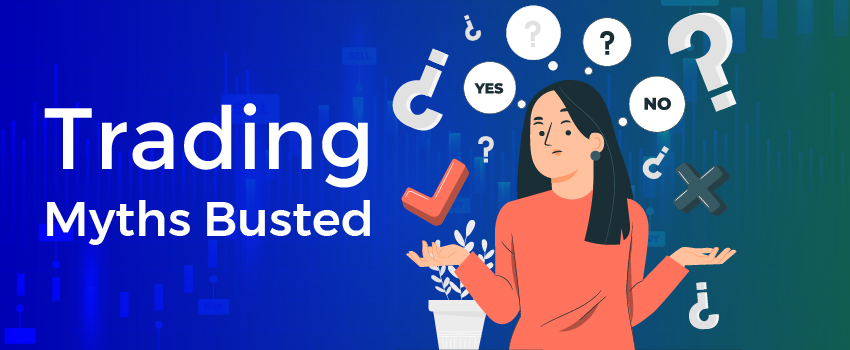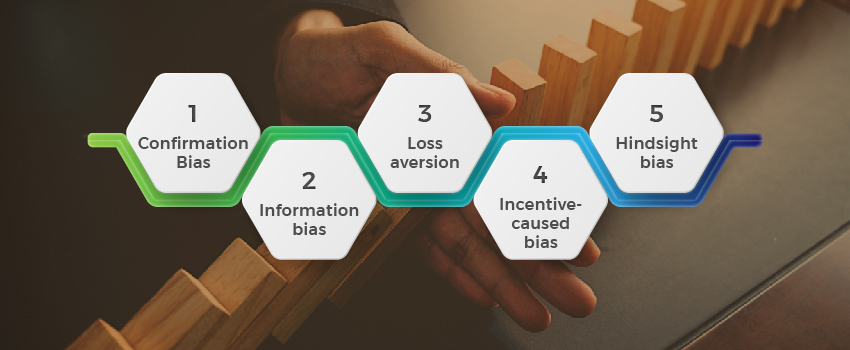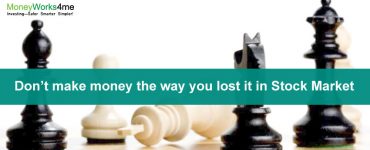The biggest challenge for anyone with a day job and wanting to invest in stocks directly is lack of time. The chief culprit, which makes Retail Investors feel that they have lost even before they begin, is the large and ever-changing amount of information.
Do you really need to be on top ever-changing, mountain of information?
It is believed that you need to be on top of this ever-changing, mountain of information before you take stock investing decisions. But is this really true? At first it seems obvious, the more information we have, the better our decisions. Seems irrefutable? But, what proof do you have to support this theory?
Luckily, a study was conducted to separate facts from fiction. Read this very carefully:
- Eight experienced bookmakers (bookies) were shown a list of 88 parameters available about a racehorse and its past performance (like number of previous wins, performance in different conditions etc.) and asked to rank them in the order of importance
- The bookmakers were then given the data of 45 past races, and asked to rank the top 5 horses in each race considering these parameters. But, the information to each bookmaker was given in various doses of 5, 10, 20 & 40 parameters. Thus, each bookmaker predicted the outcome of each race 4 times – first using the top 5 parameters (as ranked by him), then with 10 and so on. The bookmakers were also asked to give a confidence rating for each of their decisions.
So, what were the findings? The bookmakers were as accurate with 5 pieces of information as they were with 40 pieces of information, i.e. the accuracy of prediction did not rise with the increasing information!
And, the most revealing finding of the study was that while their accuracy did not increase, the bookmaker’s confidence about their prediction increased almost two-fold! It is this need to feel more confident that is the root cause for wanting more and more information. The end result is that people wrongly believe that more information means they will be more accurate. To correct this bias, read this blog.
To get rid of an infection, you need to take the recommended dosage of the antibiotic. When you take less, you are not fully cured and run the risk of falling sick again. When you take more it does not work better, but is harmful to the body and can cause side-effects. Information is like an antibiotic. If we have less than adequate information for taking a decision, chances are we will be wrong. And, if we consume more information than required, just to build our confidence, we run the risk of getting confused and distracted by the excess information, and end up making mistakes.
Information overload creates two more problems:
- Tone of the information influences your decisions: When you receive any information in the form of a story, you are driven by the way the story is narrated. Stories usually have emotional content which appeals to us, and we tend to accept the story/conclusions without scrutinizing the facts closely. So, the more stories you hear, higher the risk of you getting carried away!
- Not all information is reliable: This is where stock investing gets really complicated. It is very difficult to decipher reliable, unbiased information from the biased one. When the stakes are high, as they are for various players, the motives for spreading a particular point of view is likely to be based on self-interests rather than viewers’ interest. And, when the media believes in advising rather than informing, the game only gets murkier. No wonder, some gurus recommend never listening to any business media!
So, how do you get the right information in the right amount?
- Make a simple check-list of information required, based on a robust method: Before you start looking for information about a company, you have to decide your basis, your criteria for making investment decisions i.e. your method. To apply this method, make a checklist of the necessary bits of information that you require. Searching for information without this checklist is a terrible waste of time. It’s like going to a gigantic store, without a shopping list and hoping to come back with exactly what you need. It never works. You invariably end up buying the things you don’t need. If you have a method that works for you, good; go ahead and make your information checklist.We at MoneyWorks4me.com have one such robust method which is based on fundamental principles of value investing. It requires identifying a fundamentally sound company and it’s intrinsic worth i.e. MRP. Towards this, we provide a 10 Year X-ray, i.e. 10 year financial track record for every listed company, in an easy to understand form and information on its future prospects. We also provide the MRP through a price calculator, for every company worth investing in, thus helping you to take the correct decision. Read our blog on ‘How to assess if a company-stock has an excellent track record and is worth buying’
- Get Data from a reliable Source: Today, there are many sources of data, especially when it comes to investing. You have newsletters, online news, magazines, newspapers, and of course the various TV channels; everyone not necessarily saying the same story. As we have already said, not all information is reliable and that’s why it becomes all the more important to get your data from a reliable source.
- Consistency is the Key: Once you decide on the method that works for you, it is also important that you look at the information in a particular way, consistently. Like with a super store, the more you visit the same one, it becomes easier for you the find the things you want in a much lesser time.
Also, analyzing the same data across companies will make you sharper at seeing patterns and soon you will draw much more from the same data than you will ever get by increasing the amount of data.
To conclude,
- Answer this first, ‘Do I have a method, criteria that I use for taking stock investment decisions?’
- If not, then get this clarity asap
- If yes, pause to consider what information is necessary and sufficient to take a decision
Remember, more information does not increase accuracy, but increases your confidence, which could be misplaced. Always check the reliability of the source of information
If you liked what you read and would like to put it in to practice Register at MoneyWorks4me.com. You will get amazing FREE features that will enable you to invest in Stocks and Mutual Funds the right way.
Need help on Investing? And more….Puchho Befikar
Kyunki yeh paise ka mamala hai
Start Chat | Request a Callback | Call 020 6725 8333 | WhatsApp 8055769463











Wonderful